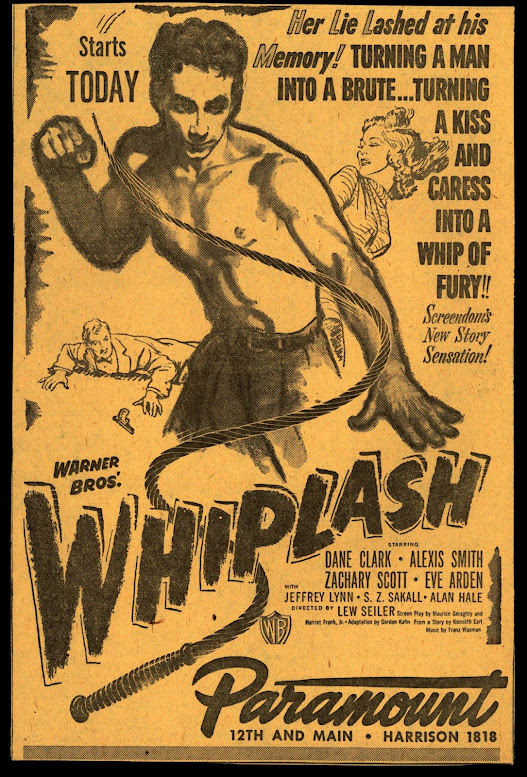Whiplash (1948) Is Postwar Treading of Warner Water
